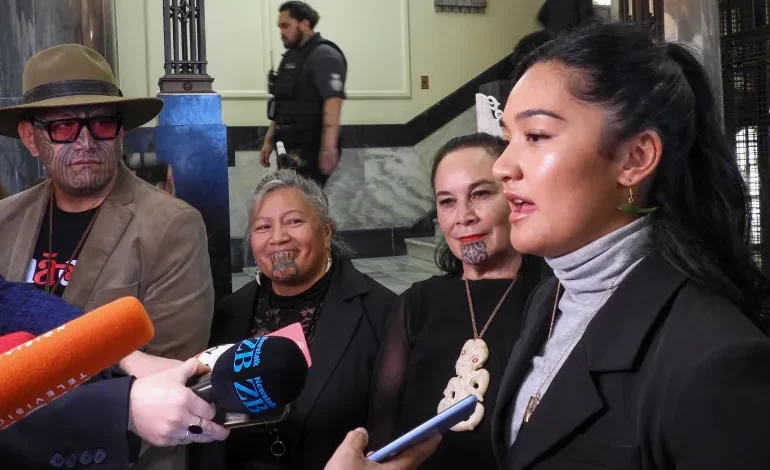New Zealand Lawmakers Face Suspension for Protest Haka in Parliament

A New Zealand parliamentary committee has recommended the suspension of three Indigenous lawmakers from the Māori Party following a protest haka performed in Parliament last year, as per Al Jazeera.
On Wednesday, the Privileges Committee advised that Māori Party co-leaders Debbie Ngarewa-Packer and Rawiri Waititi be suspended for 21 days. A third member, 22-year-old MP Hana-Rawhiti Maipi-Clarke — the youngest legislator in the country — was recommended for a seven-day suspension.
The disciplinary recommendations stem from a protest that took place in November 2024, during which Maipi-Clarke tore up a copy of a controversial race relations bill while performing a haka, a traditional Māori ceremonial dance. Waititi and Ngarewa-Packer joined her on the chamber floor in protest against the Principles of the Treaty of Waitangi Bill.
The proposed legislation sought to redefine the Treaty of Waitangi, the 1840 agreement between the British Crown and Māori leaders that serves as New Zealand’s founding document. Critics argued the bill aimed to weaken the rights and recognition of Māori, sparking widespread public outcry and demonstrations across the country. The bill was ultimately defeated in Parliament last month.
While haka and other Māori cultural expressions are not uncommon in Parliament, the committee noted that permission from the Speaker is typically required. The report also stated that Maipi-Clarke’s sanction was reduced due to her submission of a letter expressing contrition.
Despite this, the Māori Party has condemned the committee’s decision as an extreme response. “This is the harshest penalty ever handed down in Aotearoa’s parliamentary history,” the party said in a statement. “When tangata whenua [Indigenous people] resist, colonial powers reach for the maximum penalty.”
The longest previous suspension in New Zealand’s Parliament lasted three days.
Judith Collins, Attorney General and chair of the Privileges Committee, defended the recommendation, stating that disrupting a vote by physically approaching other members was a serious breach of conduct.
“The right to cast one’s vote without impediment goes to the heart of being a member of Parliament,” Collins said during a news conference. “It is not acceptable to physically approach another member on the floor of the debating chamber.”
Parliament is expected to vote on the suspensions next Tuesday, with the ruling conservative coalition likely to support the motion.









The latest news in your social feeds
Subscribe to our social media platforms to stay tuned